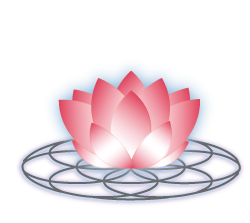Our skin is often a reflection of our overall health. If you frequently experience acne or blemishes, it might signal an underlying issue. This could range from dysbiosis—an imbalance of harmful versus beneficial bacteria in the gut—to a lack of microbial diversity. It could also be linked to poor dietary choices, where excess sugar and processed ingredients trigger inflammation throughout the body. Additionally, if your liver isn’t adequately supported, it may struggle to detoxify harmful metabolites, further affecting your skin and overall health.
In North America, it’s common to prioritize convenience over nutrition when it comes to food choices. After a long workday, the thought of shopping for groceries and preparing a meal can feel overwhelming, leading many to reach for quick, processed foods. Unfortunately, these convenience foods often provide empty calories that contribute to inflammation, bloating, and, over time, more significant health issues.
This is why it’s important to occasionally give your body a break from these habits. Nourishing your body with nutrient-dense foods can help build strong cells and support vital bodily functions. By supporting your liver, you reduce the burden of detoxifying not only the natural byproducts of your metabolism but also the toxins introduced through processed foods.
A detox doesn’t necessarily require supplements, but they can be helpful in supporting liver function and elimination pathways, such as sweating, regular bowel movements, urination, and respiration. By aiding your body’s natural detoxification processes, you can reduce inflammation, as there are fewer toxins your body needs to defend against. Additionally, many detox supplements contain antioxidants and anti-inflammatory compounds that neutralize reactive oxygen species (ROS), further decreasing inflammation.
A way you can do a gentle detox is by eating only whole foods - so nothing processed. If you are currently doing this and are still experiencing skin issues, you can also try eliminating foods that tend to cause sensitivities. You can discover your food sensitivities by doing the Elimination Diet, or by doing a Food Sensitivity Test with your Naturopathic Doctor (read more about Food Sensitivities here).
If you are still not noticing any improvements, I would recommend seeing a Naturopathic Doctor to help guide you since there’s most likely something else going on. To book an appointment with Dr. Charmagne, you can click the link below.
Happy Detoxing!
~Dr. Charmagne
Related blogs:
Understanding Food Sensitivities
Detoxifying to Support New Beginnings - Part 1
Insulin Resistance and Your Immune System
References:
Conforti C, Agozzino M, Emendato G, Fai A, Fichera F, Marangi GF, Neagu N, Pellacani G, Persichetti P, Segreto F, Zalaudek I, Dianzani C. Acne and diet: a review. Int J Dermatol. 2022 Aug;61(8):930-934. doi: 10.1111/ijd.15862. Epub 2021 Aug 22. PMID: 34423427.
Meixiong J, Ricco C, Vasavda C, Ho BK. Diet and acne: A systematic review. JAAD Int. 2022 Mar 29;7:95-112. doi: 10.1016/j.jdin.2022.02.012. PMID: 35373155; PMCID: PMC8971946.
Melnik BC. Linking diet to acne metabolomics, inflammation, and comedogenesis: an update. Clin Cosmet Investig Dermatol. 2015 Jul 15;8:371-88. doi: 10.2147/CCID.S69135. PMID: 26203267; PMCID: PMC4507494.
Liu, Y., Zhao, Y., Gao, X., Liu, J., Ji, F., Hsu, Y. C., … Nguyen, M. H. (2022). Recognizing skin conditions in patients with cirrhosis: a narrative review. Annals of Medicine, 54(1), 3016–3028.


